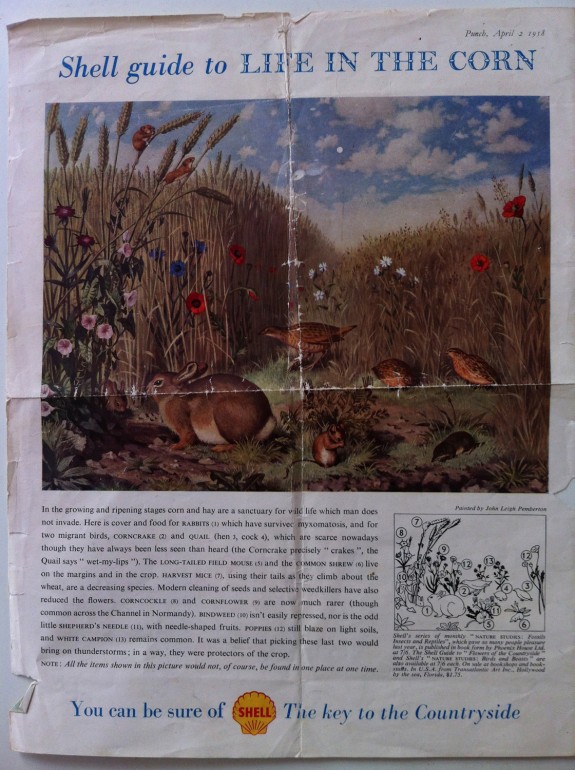Shell Oil Has Been Selling Itself As a Protector of Nature Since the 1930s
From gateway to guardian, Shell’s eco-based advertisements through the years

A 1958 ad from the British magazine Punch. Photo: Alice Bell
Some industries—think oil producers, weapons manufacturers or industrial-scale loggers—can have a harder time than others in advertising their services. These industries produce useful products that are in turn frowned upon by large swaths of society. In the first half of the 20th century, Royal Dutch Shell, an oil company formed in 1907, took an intriguing approach to marketing its brand: Shell began selling itself as a gateway to, and then protector of, nature’s splendors—first for the fields of Britain, then for the world.
In the 1930s, says John Hewitt in the Journal of Design History, “Shell first started systematically to identify itself and its products with the euphoric values of nature and art.” Art showcasing Britain’s beauty was tagged with the line “To Visit Britain’s Landmarks – You Can Be Sure of Shell.”
Like the 1930s campaign, Shell’s tactic over the coming decades wasn’t necessarily one of “greenwashing”—of trying to present the company’s work as better for the environment than it actually was. Rather, says science communication researcher Alice Bell on her personal blog, “Shell sponsored nature guides because people drove to see nature.”
The rise of the car and of a suburban lifestyle saw the rise of “nature” as a thing that needed to be sought out, and Shell portrayed itself as “the key to the Countryside.”
Over the years, the company has followed roughly the same tack. In the late 1980s, says John Hewitt,
Shell UK ran a television campaign with the copyline ‘Everywhere You Go You Can Be Sure of Shell’. Where you went was into the English countryside. Shell appeared to give you the power to range widely over land or sea. You crossed fields and headlands, bays and islands unconstrained by the mundane need for roads or boats. It was a dizzying, liberating experience which made little reference to the car or to its impact on the environment. What remained unacknowledged and certainly unresolved was that contradiction in which Shell claimed to be preserving and making available an idealized British countryside while colluding with those very forces which are rapidly transforming it.
More from Smithsonian.com:
Billboard Advertising in the City of Blade Runner
How Advertisers Convinced Americans They Smelled Bad
What Makes an Ad Successful?
/https://tf-cmsv2-smithsonianmag-media.s3.amazonaws.com/accounts/headshot/smartnews-colin-schultz-240.jpg)
/https://tf-cmsv2-smithsonianmag-media.s3.amazonaws.com/accounts/headshot/smartnews-colin-schultz-240.jpg)